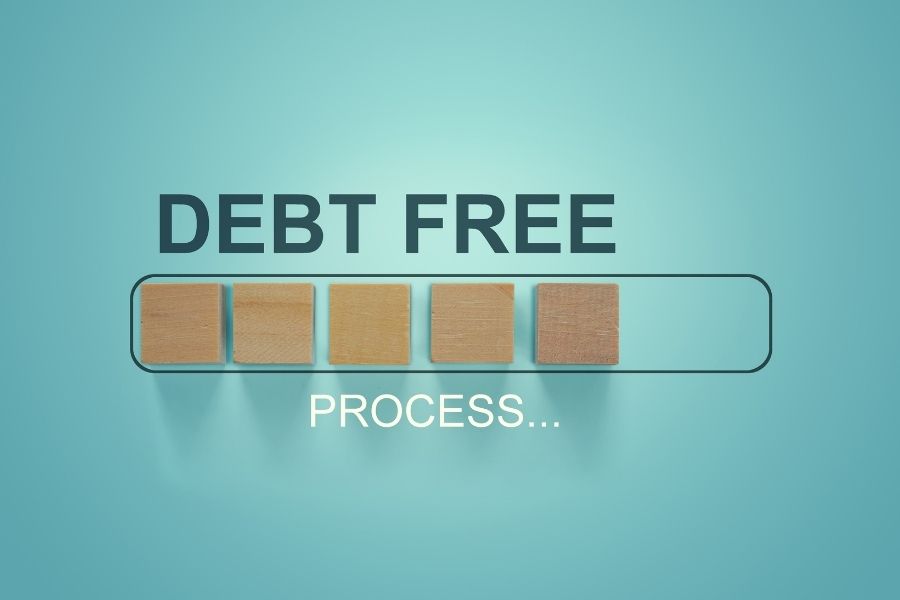Starting something new is often like standing at the edge of an ocean. The sun feels great, the ocean breeze is serene, and the water gently lapping at your feet is sublime. But then, when your cares are just starting to drift away and you close your eyes to enjoy, a wave rolls in, knocks you over, and steals one of your sandals. Your moment of calm is over.
Beginning your journey to the greatest financial future you can envision for yourself, your loved ones, and your community is similar. You’re going to feel great when you first get started – Yay! You did it! So grown up, prepared, responsible. All the things you’re supposed to be. Whoop whoop!
But inevitably, there is going to be a roadblock. You’ll get dissuaded, discouraged, disenchanted. You’ll wonder why you started in the first place, and you’ll begin hearing that question in your head – is it worth it?
Once the novelty of taking financial control of your life has worn off, that’s when you’re going to notice a consistent, dull, and rather annoying chatter. Do you hear that? Maybe it’s a low discouraging cackle or a whiny voice. Maybe it’s a soft, soothing tone telling you how hard this is and how you deserve some time off. Your Inner Dissuader will have its own style and quality, but it is probably already familiar. It’s that same voice that creeps up whenever things get challenging, things push you past your comfort zone, things are different than you wanted or expected them to be. It’s that same voice that tells you when things get tough it’s ok to give into those distractions and habits you’re trying to break. Just this once. You can start again tomorrow. It will be better, easier then.
My friends, the simple truth is, monumental change requires constant correction and rejection of everything that voice is telling you. And since you’re at Upbeat Financial, we know that creating financial freedom, cultivating financial security, and living into your greatest dreams of your financial future is one of the most monumental changes you can create in your life – and ultimately one of the most rewarding - and your Inner Dissuader has no place in it.
How do we deal with The Inner Dissuader? How do we not let them steer us off course? And can we do that with love for ourselves and this inner aspect of our persona?
- Acknowledge it. Sometimes, The Inner Dissuader is so subtle and engrained that it could be off on a full-on rant, and you barely notice it. Case in point – I recently received a response to an email that was very off putting. My initial, and practically instant reaction was anger, and I was going to let this person know. But, before clicking “Send,” I was able to pause and recognize this as an aspect of my Inner Dissuader simply bringing up a common reaction for us all when we’ve been put in our place – Anger. Rather than reply to this email from that place, I acknowledged my Inner Dissuader showing up, thanked it for trying to help, and then decided I should probably take a moment (or a few hours), take some deep breaths, and reflect a bit on the entire exchange before responding. When I finally did, the recipient replied again more enthusiastically, and we both felt better for it.
- Thank it. Your Inner Dissuader has been around for a long time and has most likely helped get you through some very difficult situations. Perhaps it is part of your overall defense mechanism for all the unknowns we have to navigate through in this life. Sometimes, you have to protect yourself, and your Inner Dissuader has always been there, coming to the rescue. The problem though is that sometimes it shows up in the face of things that we really ought to give good, consistent energy and attention to but that, for a time, may be unpleasant. If you’re trying to pull your financial life together, make better financial decisions, and plan and prepare so that you can financially weather any storm, your Inner Dissuader showing up to the party is not ideal. But it will show up because it always has. And when it does, acknowledge that it is there, and then thank it for showing up, thank it for trying to help, thank it for how much it has helped you in the past. Then gently remind it that you’ve got this one covered for now, and if you need some help from Inner Dissuader in the future, you’ll reach out (don’t tell your Inner Dissuader this, but you will never reach out). When I have done this in the past, my Inner Dissuader almost immediately dissipates, and I am once again able to look at the situation with fresh eyes and a clear head, both necessary components of switching up your financial game.
- Release it. Goals are critical in developing any new habit. Saving a certain amount each month or spending less each week are great financial goals to begin with when just starting out. But those goals can often morph into expectations, and expectations tend to be quite constrictive. It’s easy to get hung up on the “Must Do” aspect of expectation, and if you don’t do it, or it isn’t done perfectly, you can find yourself off track very quickly, forgetting your goals entirely, and losing that trendline of increasing progress. When you notice yourself getting caught up on the expectation, release it. Close your eyes, take a deep breath, maybe create a short phrase to help shift the mental space of Expectation back to one of a Goal. Say it to yourself. If you feel comfortable saying it out loud, that is even better.
Change, in any area of your life but especially one as charged as finances, works better when we give ourselves some grace, have some flexibility, and allow a few missteps with the understanding that those missteps will gradually be replaced more and more often by healthy strides.
Welcome to the Upbeat Financial blog! We’re glad you’re here. These first few blogs focus on two things: (1) Introducing you to the Upbeat Financial philosophy and approach to financial planning, and (2) Talking about the beginning stage of financial planning, what you might encounter, and how to take those first steps with confidence. We hope you enjoy, and if you have any comments or questions, feel free to reach out at info@upbeatfinancial.com. Cheers!






